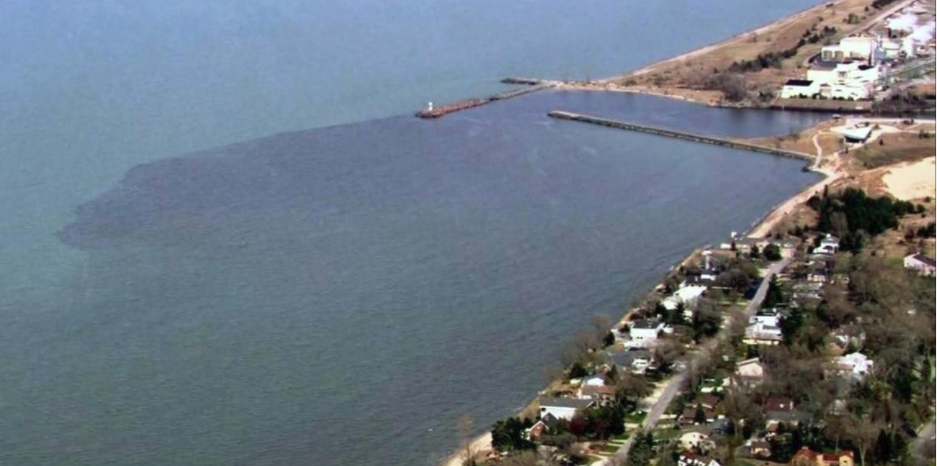
Today, the Surfrider Foundation, represented by the Abrams Environmental Law Clinic at the University of Chicago Law School, filed a Motion to Intervene in the Environmental Protection Agency (EPA) and Indiana Department of Environmental Management’s (IDEM) Clean Water Act lawsuit against the U.S. Steel Corporation. The City of Chicago – which joined Surfrider’s independent lawsuit – has also moved to intervene alongside Surfrider. At the beginning of this year, Surfrider initiated its own lawsuit against U.S. Steel for the company’s chronic Clean Water Act violations at its Portage, Indiana facility. Perhaps most appalling, in April 2017, U.S. Steel illegally discharged around 350 pounds of chromium – nearly 300 pounds of which were highly toxic and carcinogenic hexavalent chromium – into a waterway that empties directly into Lake Michigan. This discharge and U.S. Steel’s many other violations have occurred right next to the Indiana Dunes National Lakeshore, at a beautiful spot frequented by surfers, fishermen, boaters, and recreating families.
In April, EPA and IDEM finally filed both their own separate lawsuit and proposed Consent Decree (settlement agreement) against the steel manufacturer. Surfrider’s lawsuit has been stayed, though we asked the Court to lift the stay and resume the case last month, and are currently waiting for the Court’s decision on that Motion.
However, with the egregiousness of U.S. Steel’s repeated, chronic violations – which threaten the health and wellbeing of the Surfrider members and others who recreate at the Lake’s Southend, and those whose drinking water comes from this part of the lake – Surfrider is making every effort to hold U.S. Steel accountable and is taking this action to do more than just wait for the Court to lift the stay on our lawsuit. As Surfrider previously asserted in our public comments on the government’s proposed Consent Decree, submitted in July, the proposed $601,242 in total state and federal penalties are unconscionably low and cannot be expected to have any impact on how U.S. Steel makes compliance and investment decisions in the future, or deter other industrial actors from violating the Clean Water Act. This amount is far less than the statutory maximum penalty, conservatively calculated at more than $10,750,000. Additionally, U.S. Steel should be required to undertake a local project that would benefit the area and communities negatively impacted by its water quality degrading actions.
Therefore, by intervening and becoming a party to the governments’ lawsuit, Surfrider seeks to ensure that any settlement executed to resolve the governments’ claims is fair, adequate, and in the public interest. U.S. Steel must cease illegal pollutant discharges, and must adequately improve its facility and its maintenance and monitoring practices to ensure it comes into full compliance with its National Pollutant Discharge Elimination System Permit and the Clean Water Act. The penalties and injunctive relief required by the governments’ lawsuit must be strong enough to guarantee this.
Surfrider's motion for intervention included supporting affidavits from six Surfrider members and surfers (including Amanda Bye, Peter Matushek, Paul D’Amato, Steve Haluska, and Courtney Shimenetto), detailing how U.S. Steel's water quality violations and pollution have diminished the quality of their surfing experience - or kept them out of the water altogether - at the Southend of Lake Michigan.
You can help support Surfrider in this fight to protect Lake Michigan water quality by joining Surfrider as a member and/or making a donation to the Chicago Chapter here. Your support makes campaigns like this possible!
- Staley Prom
Additionally, the CIty’s lawsuits states: "Newly public facts suggest there may be acute, ongoing threats to the public from U.S. Steel's facility, i.e., that hexavalent chromium from April 2017 may be migrating through groundwater into the Burns Waterway and that a pipe carrying hexavalent chromium may be leaking," the city's attorneys wrote.
Chicago says the July report indicates U.S. Steel failed to resolve problems that caused or contributed to the Clean Water Act violations.
"Specifically, these documents indicate that the Midwest Plant may still be leaking chromium into the Burns Waterway, that U.S. Steel has not identified the precise cause of the leak, and that the chromium levels described in the consent decree are severely underestimated," the city's motion states.
